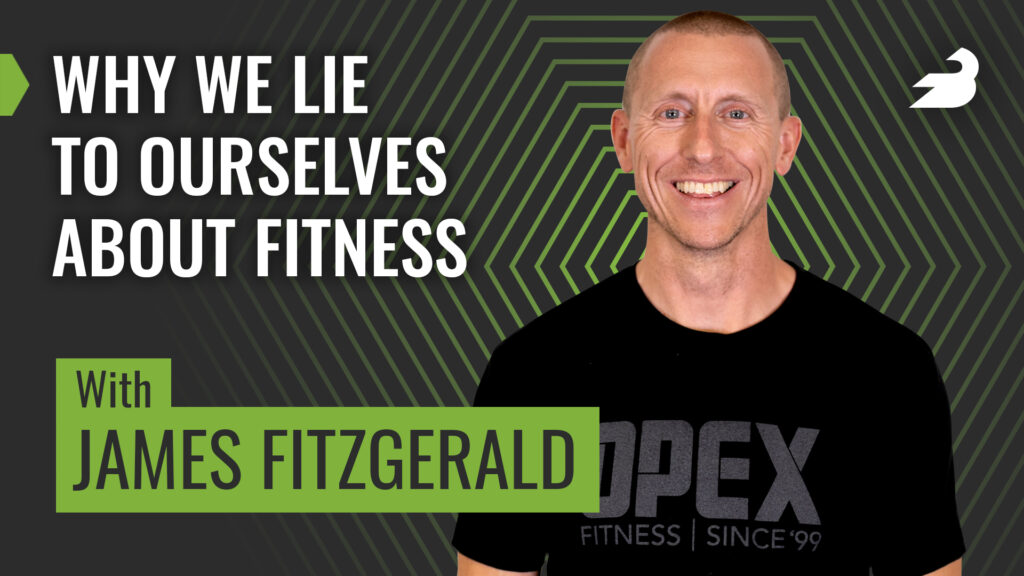Today we have a rare repeat podcast guest, James Fitzgerald. James was the first-ever men’s champion at the CrossFit Games – back in 2007 — and since then he’s built a reputation as one of the fitness industry’s most thoughtful and prolific coaches. His company OPEX offers a variety of online coaching and education resources, which gives James nearly-unparalleled insight into macro trends in fitness. But our conversation here goes deeper than the latest and greatest in working out. James gets candid about discussing how the question “why do we work out?” has more flawed answers than honesty. If you’ve ever wanted to dive into the philosophy of exercise, training, and the human condition, this is certainly an episode we hope you’ll enjoy.

In this episode of the BarBend Podcast, David Thomas Tao talks to James FitzGerald about:
- How James and his company (OPEX) adapted from early 2020 through now (3:00)
- The move to virtual-first and at-home training (6:30)
- James’ “shameful” moment and realization in fitness (11:00)
- The “why” of fitness and why it’s all about intent (16:22)
- A simple example of intentions: “Why do we bench press?” (21:00)
- Why you can hold two different opinions in your mind at the same time (23:30)
- The folly of what we do compared to sustainable practice (26:00)
Relevant links and further reading: